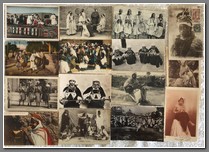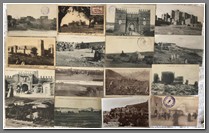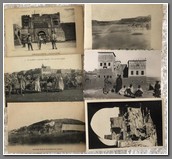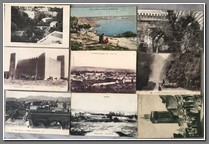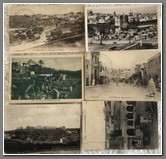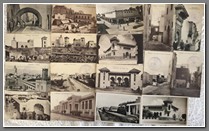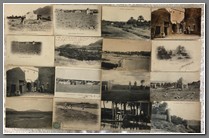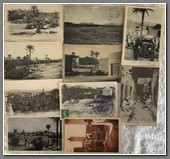Collection of 62 French colonial postcards on different trades and occupations in Morocco, such as hairdressing, farming, forging, delivering goods, weaving, pottery making, brick making, drawing water, selling scrap, shipping, woodworking, grocer, metal working, hauling wood, blacksmith, painting, spinning cotton, transporting food, bookbinding, more. Some postcards contain handwritten text and dates on reverse. B
Price: $1860.00
 MR 180 MR 180 |  MR 180 MR 180 |  MR 180 MR 180 |  MR 180 MR 180 |
 MR 180 MR 180 |  MR 180 MR 180 | 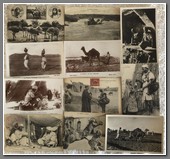 MR 180 MR 180 | 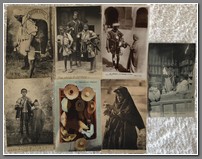 MR 180 MR 180 |
















